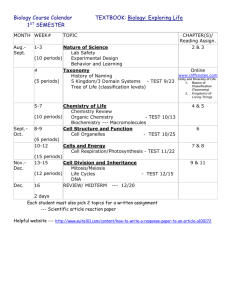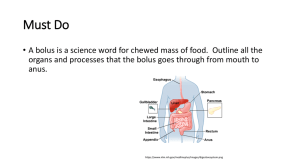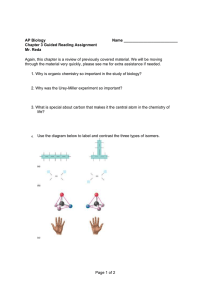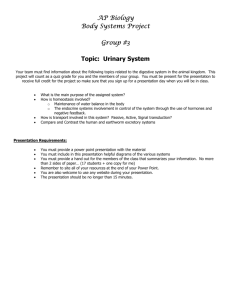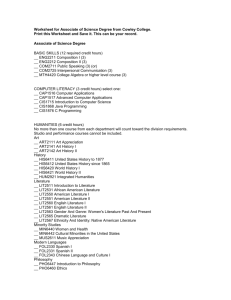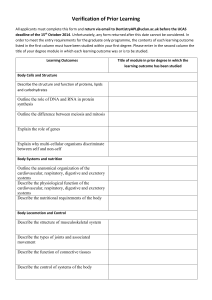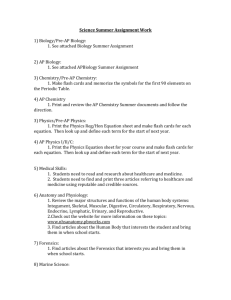human biology
advertisement
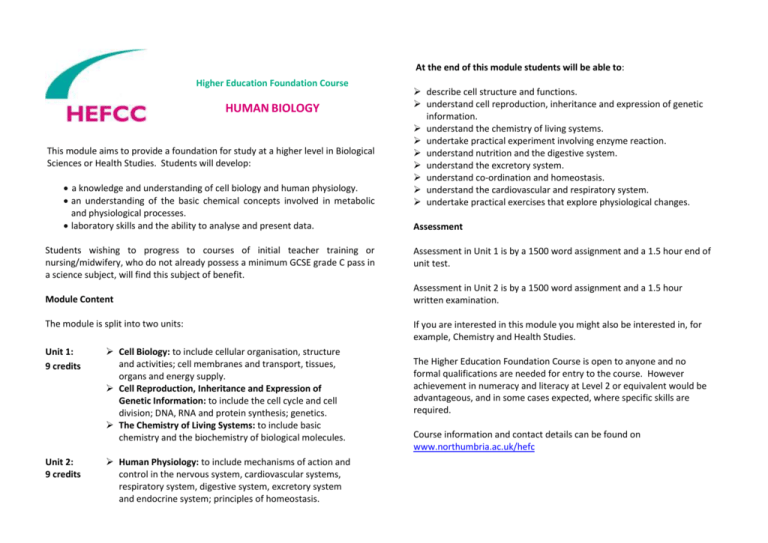
At the end of this module students will be able to: Higher Education Foundation Course HUMAN BIOLOGY This module aims to provide a foundation for study at a higher level in Biological Sciences or Health Studies. Students will develop: a knowledge and understanding of cell biology and human physiology. an understanding of the basic chemical concepts involved in metabolic and physiological processes. laboratory skills and the ability to analyse and present data. Students wishing to progress to courses of initial teacher training or nursing/midwifery, who do not already possess a minimum GCSE grade C pass in a science subject, will find this subject of benefit. Module Content The module is split into two units: Unit 1: 9 credits Unit 2: 9 credits Cell Biology: to include cellular organisation, structure and activities; cell membranes and transport, tissues, organs and energy supply. Cell Reproduction, Inheritance and Expression of Genetic Information: to include the cell cycle and cell division; DNA, RNA and protein synthesis; genetics. The Chemistry of Living Systems: to include basic chemistry and the biochemistry of biological molecules. Human Physiology: to include mechanisms of action and control in the nervous system, cardiovascular systems, respiratory system, digestive system, excretory system and endocrine system; principles of homeostasis. describe cell structure and functions. understand cell reproduction, inheritance and expression of genetic information. understand the chemistry of living systems. undertake practical experiment involving enzyme reaction. understand nutrition and the digestive system. understand the excretory system. understand co-ordination and homeostasis. understand the cardiovascular and respiratory system. undertake practical exercises that explore physiological changes. Assessment Assessment in Unit 1 is by a 1500 word assignment and a 1.5 hour end of unit test. Assessment in Unit 2 is by a 1500 word assignment and a 1.5 hour written examination. If you are interested in this module you might also be interested in, for example, Chemistry and Health Studies. The Higher Education Foundation Course is open to anyone and no formal qualifications are needed for entry to the course. However achievement in numeracy and literacy at Level 2 or equivalent would be advantageous, and in some cases expected, where specific skills are required. Course information and contact details can be found on www.northumbria.ac.uk/hefc
